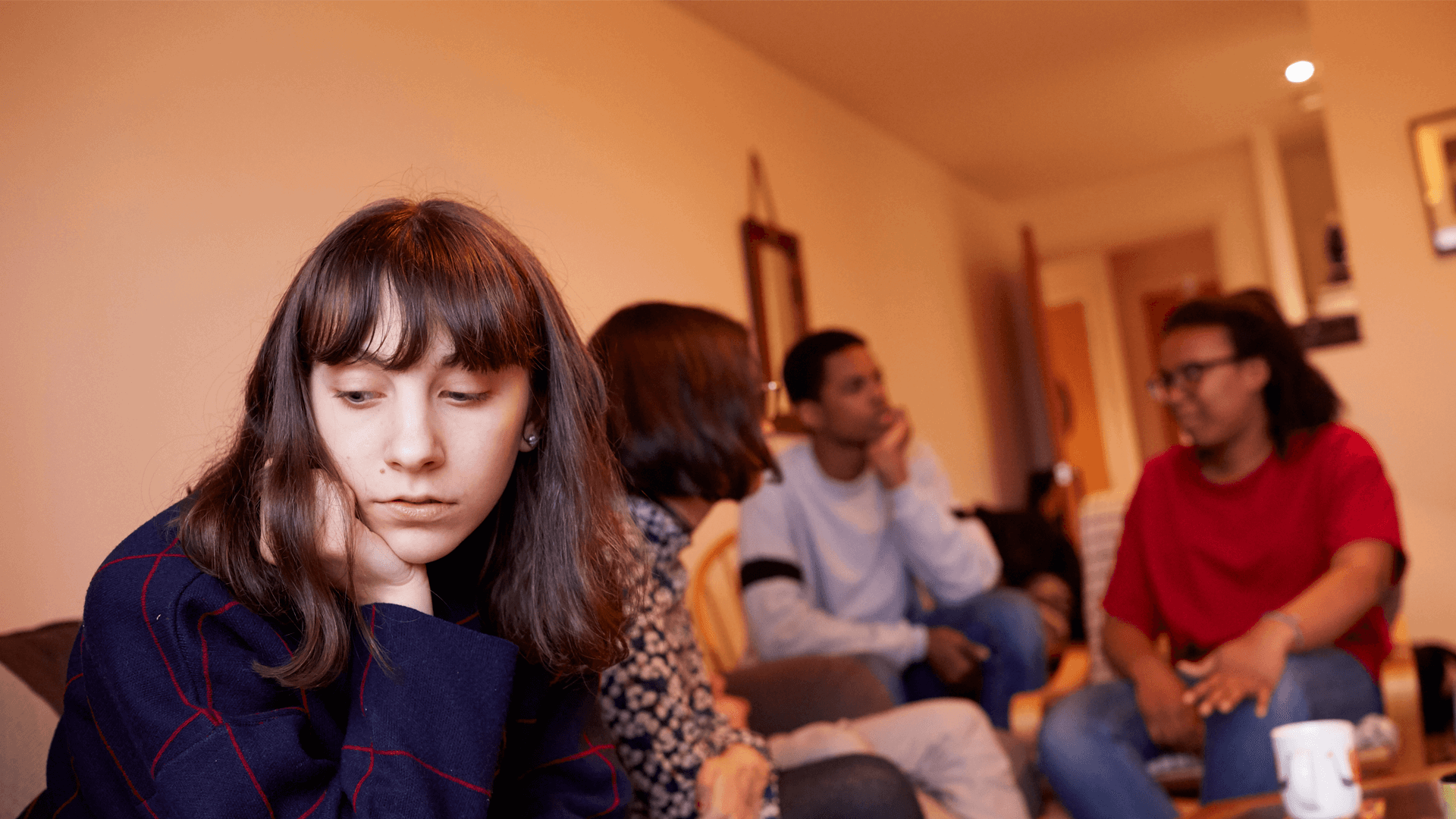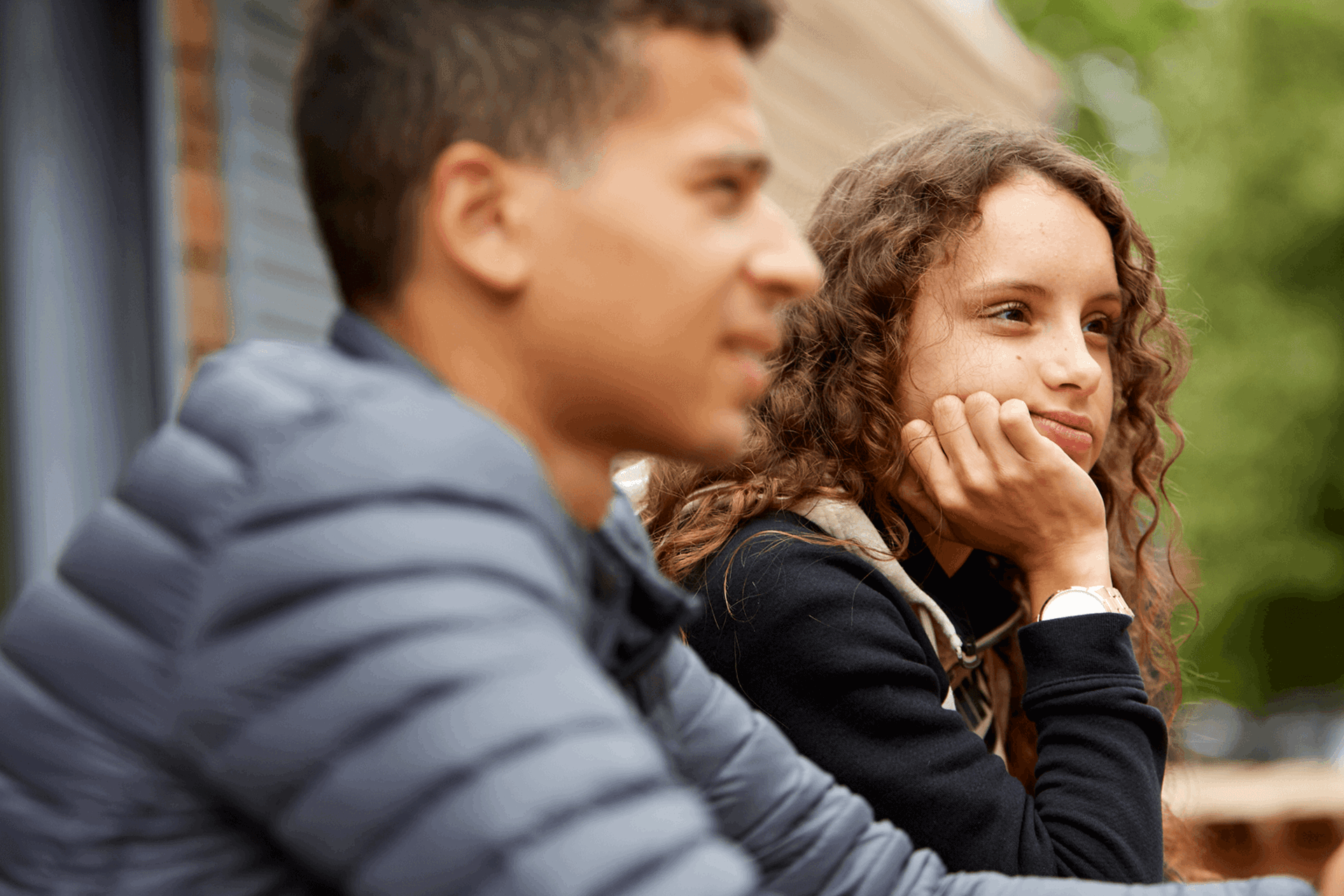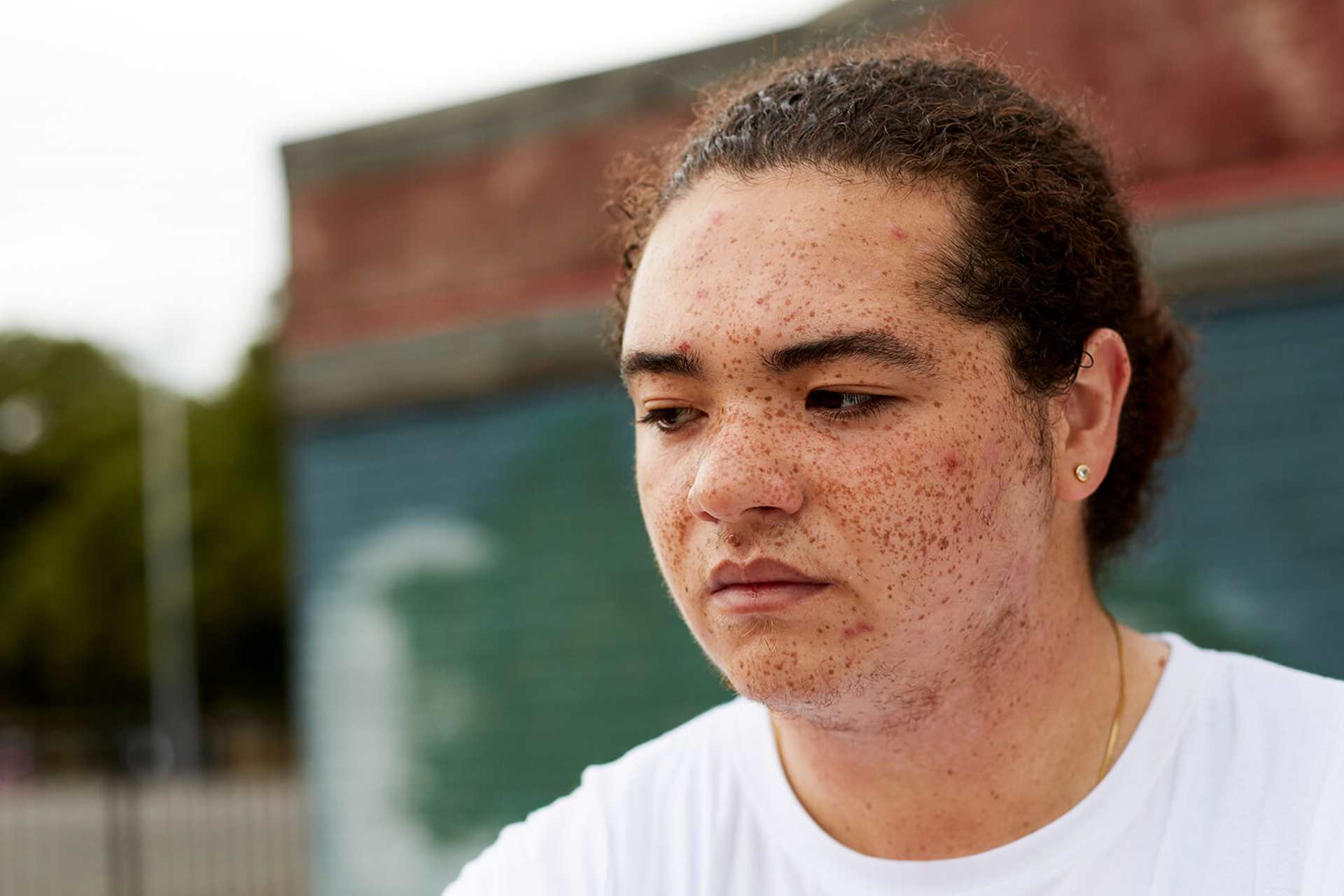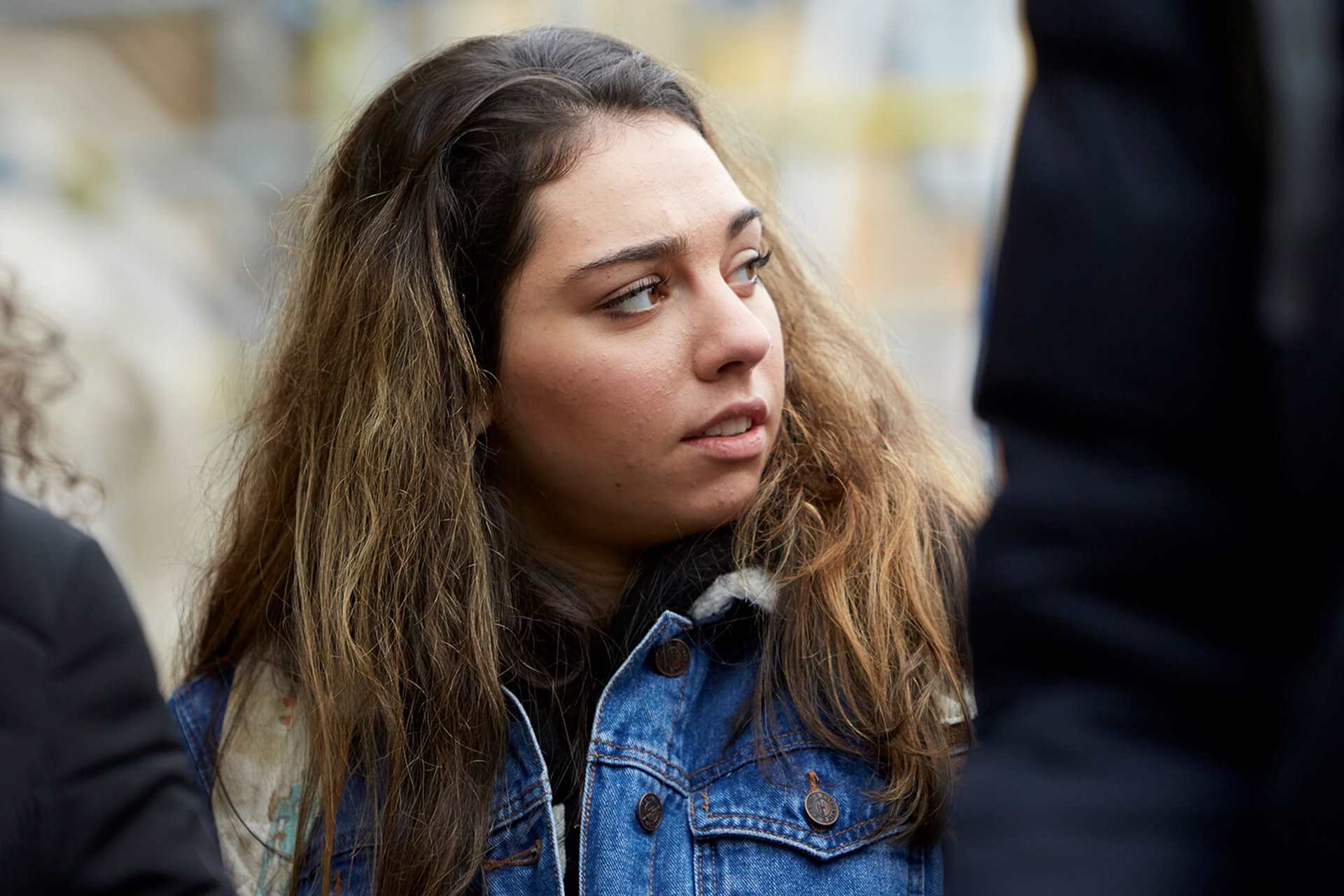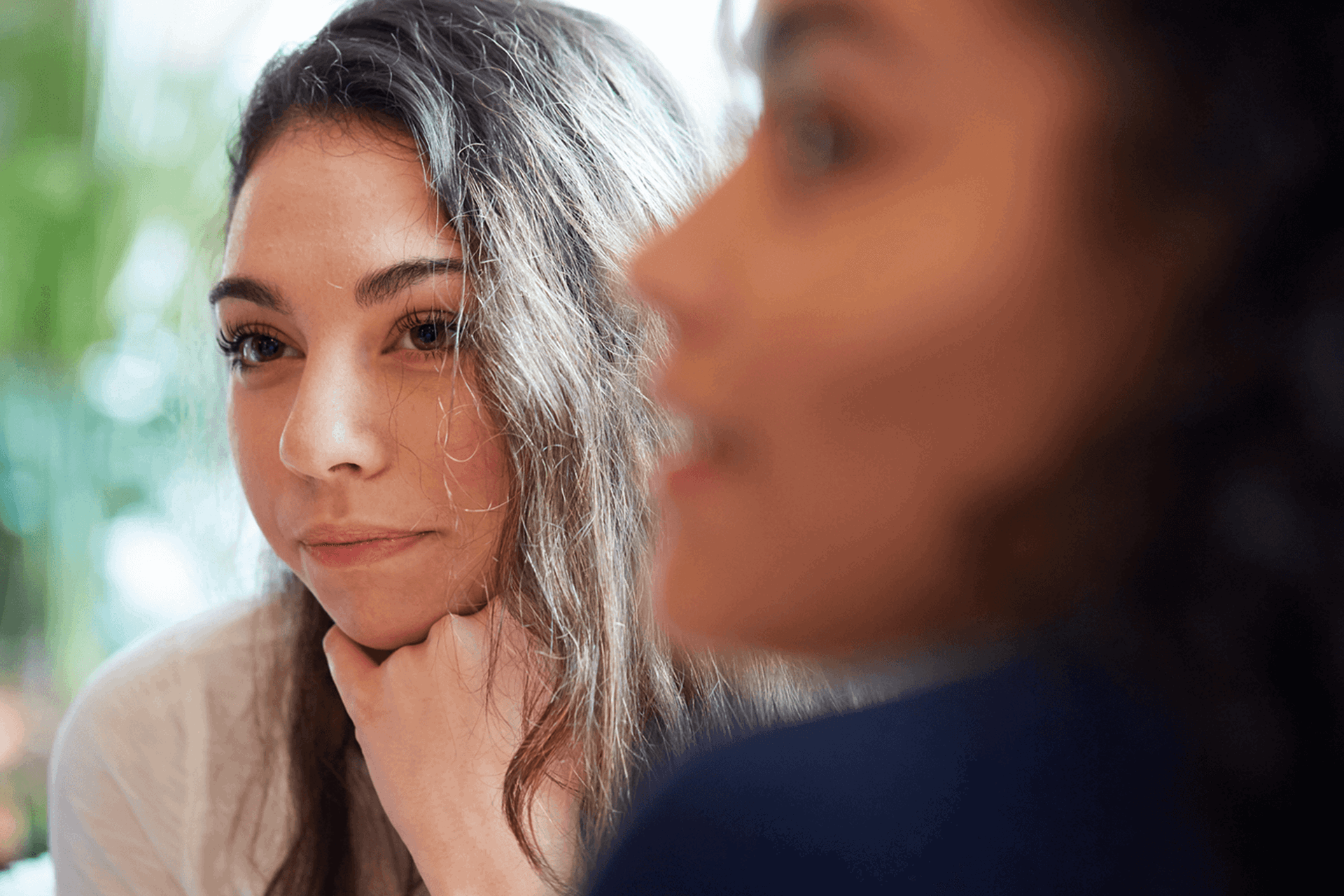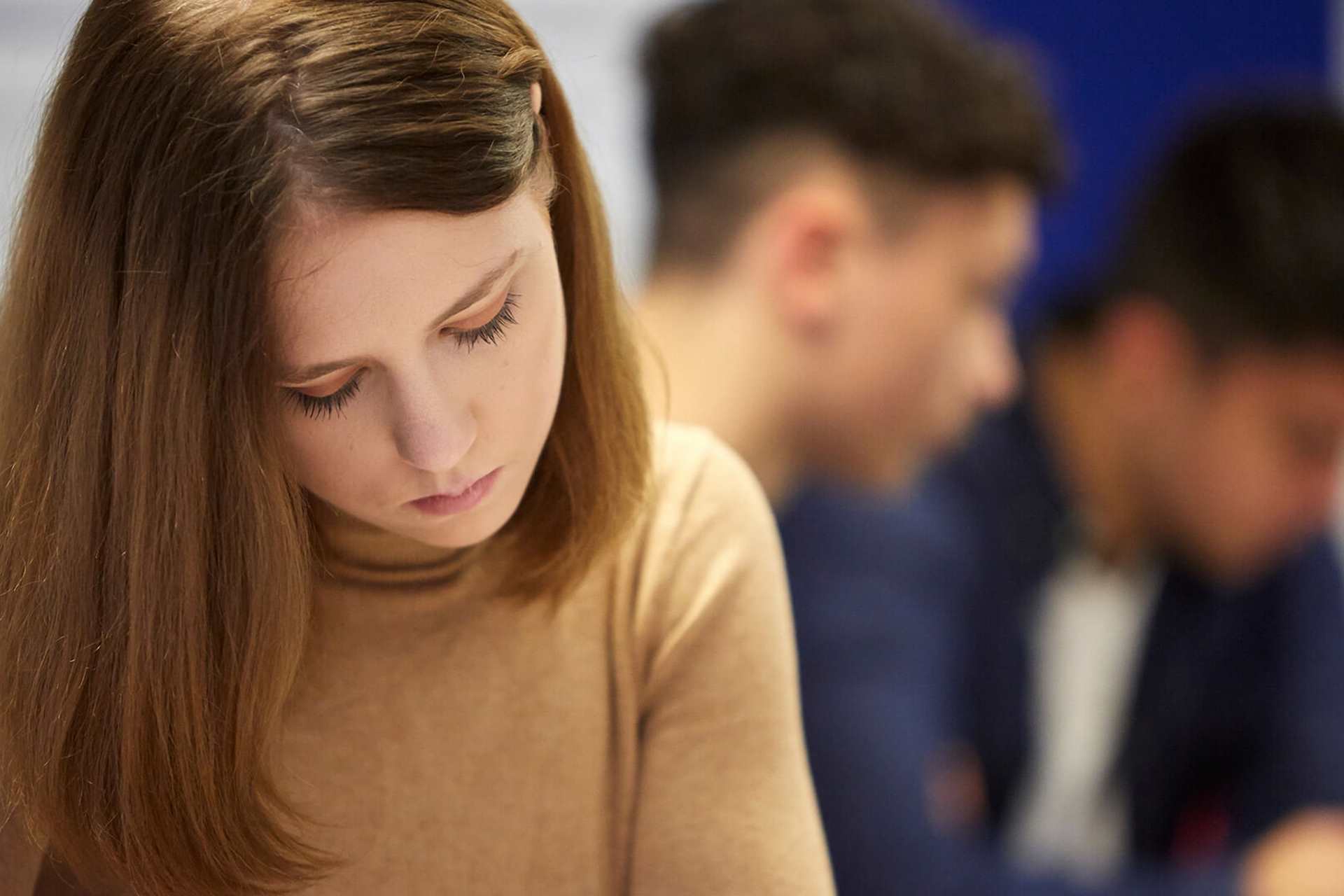Topics mentioned: trichotillomania (hair-pulling disorder), trichophagia (compulsive eating of hair), anxiety, OCD, feeling alone, counselling and therapy
About: Izzy describes their experience of trichotillomania and trichophagia to raise awareness, and shares their tips for coping and reaching out for help.
This blog contains references to hair-pulling and hair-eating. Please do not read on if you think the content may be triggering for you. If you are currently struggling with your mental health, please visit our find help page for information, advice and guidance on where to get support.
If you suffer from trichotillomania or trichophagia, please know that you are not alone in this. You can reach out to someone for help.
For many years, I have struggled with pulling my hair out when my mind is wandering or when I’m stressed. It’s called trichotillomania, a little-known disorder often associated with anxiety or obsessive compulsive disorder (OCD). I’m not sure when or why I started doing it. It felt like a habit similar to nail-biting - it was a way to ease feelings of stress and it felt hard to stop doing it.
Afraid to reach out for help
Some people with trichotillomania also suffer from trichophagia - those with trichophagia also feel the need or desire to eat some or all of a pulled-out hair strand. My trichophagia started when I was struggling the most with my OCD. I got a compulsion to bite off the root tips of my hairs whenever I pulled them out (which I later learnt is a common habit for people with trichophagia).
When my OCD was really intense, I would sometimes feel I had to swallow the whole strand. It was uncomfortable, but it was more bearable than the stress of not doing the compulsion.
When I went to get my hair cut, the hairdresser discovered a bald spot at the back of my head, in the spot where I did most of my hair pulling and scalp picking. I felt so embarrassed.
Over time my OCD gradually became less severe, but the trich continued, along with picking at my scalp. When I went to get my hair cut, the hairdresser discovered a bald spot at the back of my head, in the spot where I did most of my hair-pulling and scalp-picking. I felt so embarrassed. I had to tell my mum and my friends how it happened, but I left out the hair-eating, afraid of what they would say.
I stopped pulling hair from my head, and thankfully my bald spot eventually grew back. However, I kept pulling out my eyebrow hair, often absent-mindedly eating the hairs. The bald spots on my eyebrows were less easy for people to spot. It was something I tried not to think about.
I was hoping to find first-hand accounts of other people’s experiences with this issue.
Lack of online resources
Earlier this year I decided to Google ‘hair eating’ out of curiosity. To my shock, the results were dominated by horror stories of the health problems caused by trichophagia such as the rare ‘Rapunzel’ syndrome. It was such a shock - I had no idea that trichophagia could affect my physical health.
I was hoping to find first-hand accounts of other people’s experiences with this issue, but all I could find was frightening medical information. It made me feel alone and ashamed, like I must be crazy for having this disorder. My health anxiety skyrocketed.
And worst of all, I felt like I couldn’t tell anyone about it. I was worried they would think I was insane and I felt ashamed that I had seemingly brought this on myself. I started to write an email to my GP to ask for advice, but I couldn’t bring myself to send it. What if they hadn’t even heard of trichophagia?
I felt like I couldn’t tell anyone about it. I was worried they would think I was insane and I felt ashamed that I had seemingly brought this on myself.
What I wish I'd known
The good news is that although this revelation shook me, it helped stop my trichotillomania and trichophagia pretty much completely. As far as I know I haven’t had any health issues, but I’m going to keep myself informed on the symptoms it can cause. Sometimes I find myself absent-mindedly hair-pulling, but once I catch myself, I resist the temptation to continue. I keep my hair short because I like the hairstyle, but also because it helps me to stop pulling.
I’m sure my feelings of shame will be familiar to many who suffer from trichotillomania or trichophagia. It doesn’t help that what little public knowledge there is of these disorders is surrounded by stigma - I remember before I started doing it hearing a family member talk about pulling out your eyelashes being a sign of insanity (which is not true!). But I believe if more people were educated about trichotillomania and there was more awareness online, there wouldn’t be such a stigma surrounding it, and people with the condition wouldn’t feel so alone and ashamed.
I wish I had known about the health problems trichophagia can cause sooner, but I also wish that I had known that trichophagia is a disorder that affects many people, and that it’s not just being crazy or weird.
I believe if more people were educated about trichotillomania and there was more awareness online, there wouldn’t be such a stigma surrounding it, and people with the condition wouldn’t feel so alone and ashamed.
You are never alone
If you suffer from trichotillomania or trichophagia, please know that you are not alone in this. You can reach out to someone for help. Telling someone you trust can lessen your load and help you find support, such as counselling or cognitive behavioural therapy (CBT). With the right help, things can get better.
More information and advice
We have tips and advice to help you find the support you need. Take a look at our guides.
Where to get help
However you're feeling, there are people who can help you if you are struggling. Here are some services that can support you.
-
OCD Action
Offers support and information to anybody affected by obsessive compulsive disorder (OCD).
- Opening times:
- 9:30am - 8pm, Monday - Friday
